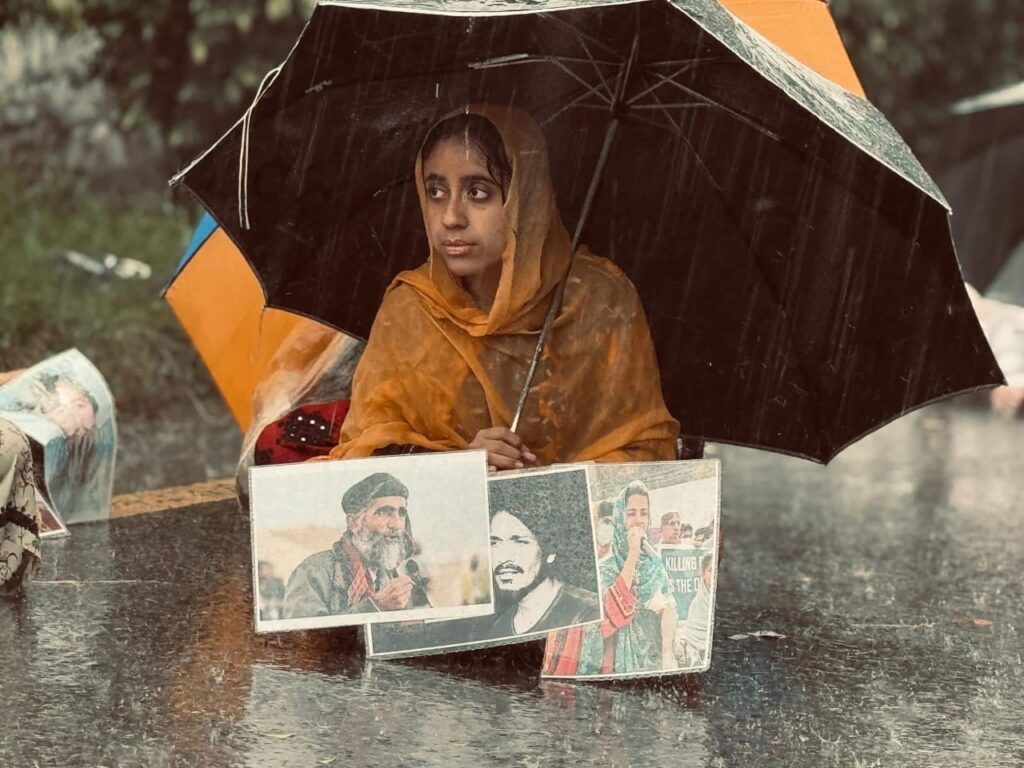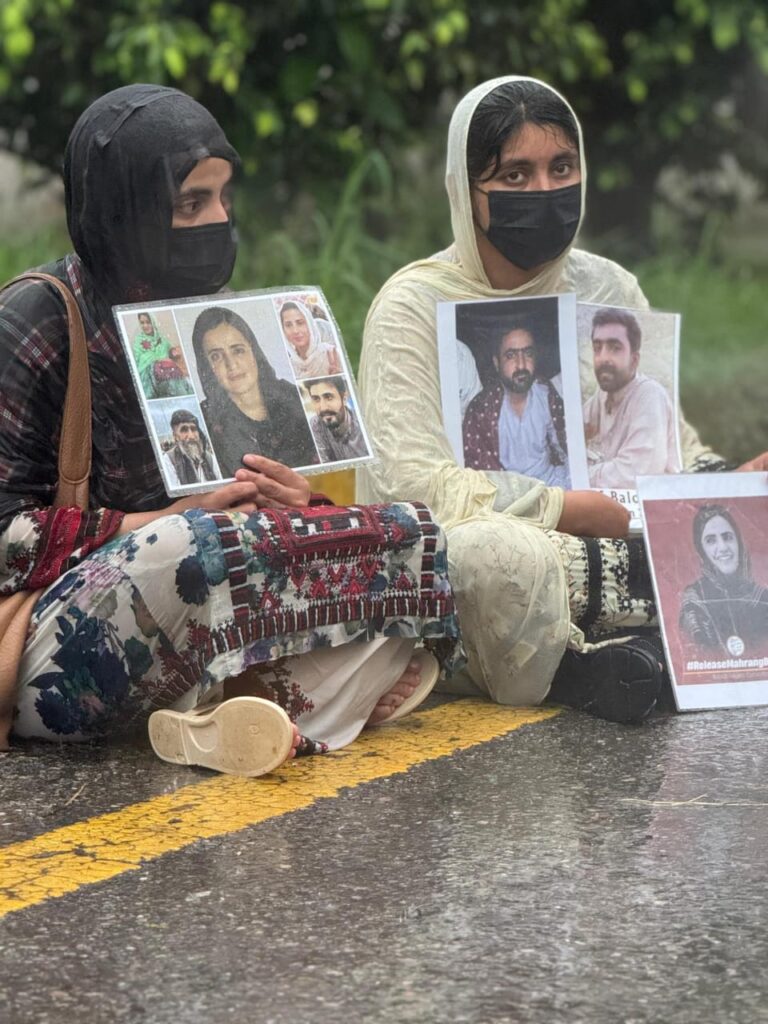TNV REPORT
The protest by families of Baloch missing persons in Islamabad entered its sixth consecutive day on Monday (today), as most of the protestors are women and children, braving heavy rain without shelter, and increasing restrictions by the capital city administration and police.
Despite the deluge, the protesters said they are being stopped from setting up tents or basic awnings. The Islamabad administration has increased pressure, including barricading the protest site in front of the National Press Club, blocking routes, and denying the demonstrators even minimal space to camp.
Nadia Baloch, sister of detained activist and Baloch Yakjehati Committee’s Organiser, Dr Mahrang Baloch, denounced the authorities’ actions and described the scene as a deliberate attempt to dehumanize and silence the voices of the oppressed.
“In this rain, in this flood-like situation, families are sitting under the open sky. Elderly mothers, children, exhausted, wet, and shivering in the rainwater and mud. The state has completely abandoned us,” Nadia added.

“We are not asking for any privilege. We are asking for our brothers, our loved ones who have disappeared without any trace. And yet, we are treated like enemies.”
She added that the refusal to allow even tents was part of a systematic campaign to push Baloch families out of the federal capital territory.
On Sunday, police barred protesters from reaching the Islamabad Press Club by erecting barbed wire around the premises and blocking access routes. Protesters say two large passenger buses were also parked by the administration to further prevent their assembly. Some officials reportedly told them to “go back to Balochistan.”
Baloch Yakjehati Committees’ leader Sami Deen Baloch said in a statement on X (formerly Twitter)
“Baloch families are not even being allowed to sit on the pavement. They are peacefully demanding justice, yet facing harassment. This is moral and constitutional failure.”
She also added that the state’s behaviour was “not only a violation of human rights but also a clear reflection of state bias and intolerance.”
Human rights organizations have strongly criticized the Islamabad administration’s handling of the demonstrators. The Human Rights Commission of Pakistan (HRCP) expressed concern over the treatment of peaceful protesters by the Islamabad police.
HRCP also noted that many of the protestors are women and children who travelled from Balochistan to seek the release of political prisoners and victims of enforced disappearances.
The HRCP highlighted the protesters’ right to peaceful assembly and urged the authorities to distinguish between advocacy for legitimate rights and militancy.
The HRCP emphasized that Baloch women and children deserve the same respect and protection as any other citizens of Pakistan.

It’s noteworthy to be mentioned here that enforced disappearances remain one of the most pressing human rights issues in Balochistan. In 2023, Dr Mahrang Baloch led a march from Balochistan and which turned into two-month-long sit-in in Islamabad, calling for an end to the practice. She was initially prevented from entering the capital, and hundreds of demonstrators were arrested during the protest.
Earlier this year, on March 22, 2025, Mahrang and other leaders of the Baloch Yakjehti Committee (BYC)—including Sibghatullah Shah, Beebow Baloch, Bebarg Baloch, Gulzadi Baloch, and Ghaffar Balochof the National Party (NP)—were arrested in Quetta. The protest was organized in response to a police crackdown in which ‘demonstrators’ were reportedly killed.
The activists were booked under the Anti-Terrorism Act and Section 3 of the Maintenance of Public Order (MPO). Their supporters claim the charges are fabricated to suppress peaceful dissent.
On July 8, an Anti-Terrorism Court in Quetta dropped the 3MPO charges but re-arrested Mahrang and others under new FIRs, granting a 10-day police remand. On July 18, the court extended their remand by another 15 days, despite objections from their legal counsel over lack of evidence.
Human rights groups have raised alarms about deteriorating detention conditions. Reports from March highlighted that Mahrang had been denied medical treatment, subjected to 24-hour surveillance including inside her washroom, and threatened with solitary confinement. Her sister described the prison conditions as “deliberately inhumane.”
International organizations such as Amnesty International, UN Working Groups, and the World Expression Forum (WEXFO) have denounced Pakistan’s use of anti-terror laws to target peaceful activists. In June 2025, WEXFO honored Mahrang with an empty chair at its annual forum in Norway to symbolize her silenced voice.
